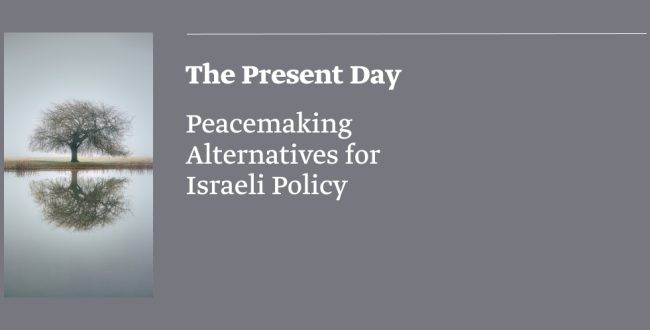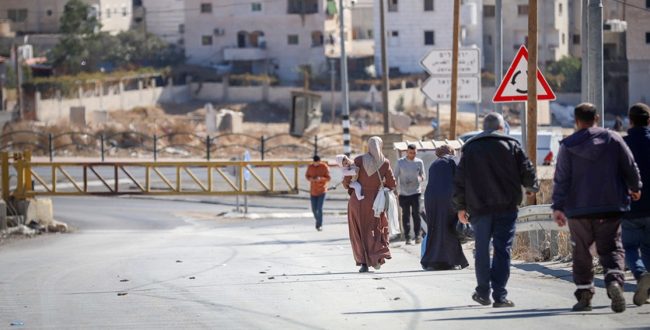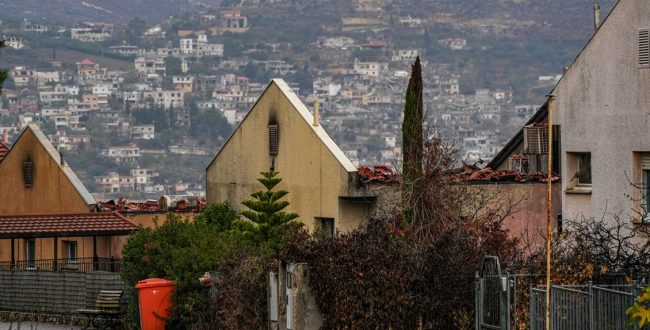Rather late in the game, Hamas has discovered the power of human rights discourse to galvanize the Palestinian struggle for independence, which is currently stuck in a rut. Yet rather than bring the movement closer to its rival, Fatah, the adoption of Western rhetoric has intensified competition over the hearts of Palestinians.
On April 9, 2018, Isma’il Haniyeh gave a speech at the Return Camp pitched as part of the recent protests along the Gaza-Israel fence. Posed in front of huge blow-ups of Martin Luther King, Mahatma Gandhi and Nelson Mandela, the Hamas leader declared that Gaza was entering a new political phase of nonviolent resistance. The speech was riddled with contradictions: On one hand, he stressed the importance of armed struggle, emphasized the absolute right of refugees to return to “all of Palestine” and flatly refused to recognize Israel; on the other hand, he lauded the power of nonviolent resistance to get the “issue” back on the international agenda.
“I ask all the factions […] to understand the needs of this stage, in which our lethal weapon is the people, the masses. They are our means for knocking on the occupier’s gates and opening them for the return,” said Haniyeh. “Today we have a shield and a sword: the shield of the masses and the sword of resistance.” Haniyeh proudly stated that the Gaza popular protests had led to two UN Security Council votes on the Palestinian issue within days. “The Zionist entity is at a loss politically and in terms of security, because it cannot handle these thousands of people,” he added.
Using terms such as “liberty”, “racial discrimination” and “apartheid”, Haniyeh redefined the Israel-Palestinian conflict as a struggle for civic equality. For the most part, however, his speech was a litany of wild accusations against Mahmoud Abbas for taking a reconciliatory stance towards Israel. Haniyeh called this approach “a political abomination, a form of AIDS that some Palestinians have contracted in matters of politics and security”.
Gazan journalist Mostafa Elsawaf has called the speech Hamas’ divorce papers from Fatah and from Egyptian negotiation attempts. “Was Haniyeh’s speech today an announcement of divorce from Abbas, the beginning of a new phase in dealings with him? Are we going to hear Abbas declare a divorce from Gaza?” he tweeted when the speech was over.
Either way, the Palestinian government in Ramallah wasn’t about to stand by while Haniyeh tried to bludgeon his way into the human rights hall of fame. In an article titled “The reply of Gandhi, King and Mandela”, PLO leader and negotiator Saeb Ereqat argued that the noble figures enlisted by Haniyeh must be turning over in their graves to hear their legacy exploited to justify the Islamic movement’s policy in Gaza.
Ereqat directed his criticism primarily at Hamas’ choice to overthrow the legitimate government in Ramallah in 2007, and hinted that Hamas has maintained the anti-Semitic view that equates Zionism with Judaism: “We are proud of Gandhi and Mandela for standing by the Palestinian people in our long struggle for freedom and independence. It is important to note Gandhi, who clearly distinguished between Zionism and Judaism in his reply to Zionist philosopher Martin Buber’s attempt to persuade him that Zionism was a just cause: ‘There is a nation in Palestine, and it must not be driven out.’ Similarly, Mandela said: ‘Our freedom is incomplete without the freedom of the Palestinians.’ As for MLK, who did not mention the Palestinian issue, we remember how he spoke out against anti-Semitism.”
According to Ereqat, now that the Palestinians have rejected Trump’s and attained wall-wall support of nonviolent marches, there is no longer any strategic disagreement between Fatah and Hamas. “The continued divisiveness [of Hamas]; the accusations of disloyalty, heresy and denial of the other; the dissemination of a culture of hatred and hostility; the denial of liberties and the ongoing coup; all these broaden the breach into which the United States and Israel step in order to destroy the Palestinian national project”, he concluded.
Israel, for its part, has clearly taken note of Hamas’ gear shift and likely understands that as long as the Hamas government continues to compensate families of casualties by the fence the tune of $3,000 for every person killed and $500 for those severely wounded, military force will not be enough to suppress the Gaza protests. On April 10, the Coordinator of Government Activities in the Territories (COGAT) quietly announced that the permitted fishing zone off Gaza would be expanded from six to nine miles within three months, “to prevent deterioration in Gaza”.
This is a step in the right direction, but not enough. The government’s compliance with the demand of Israeli communities along the Gaza border to allow Palestinian laborers in through Erez Crossing will ease the economic pressure on Gaza and strike a lethal blow to Hamas propaganda. If Hamas stops the laborers from entering Israel, the responsibility for Gazans’ distress will fall squarely upon its shoulders, not on Israel’s.
Translated by Michelle Bubis


















